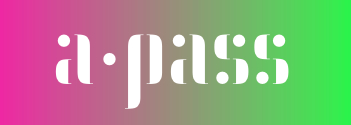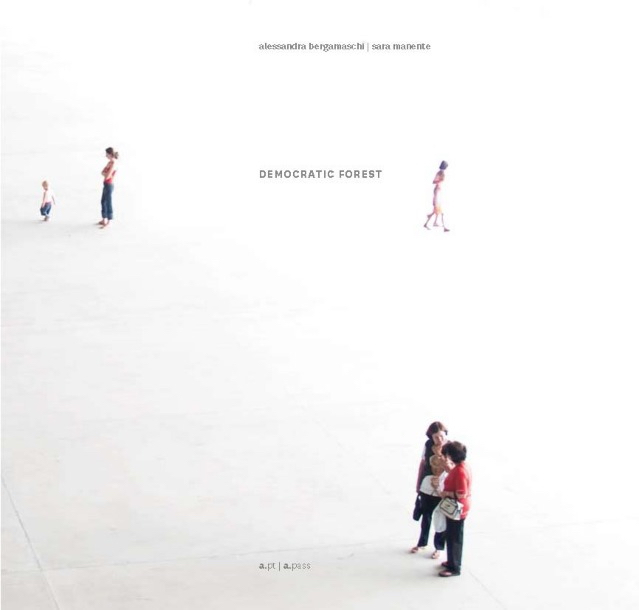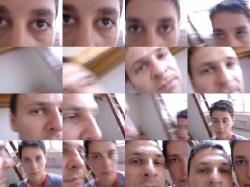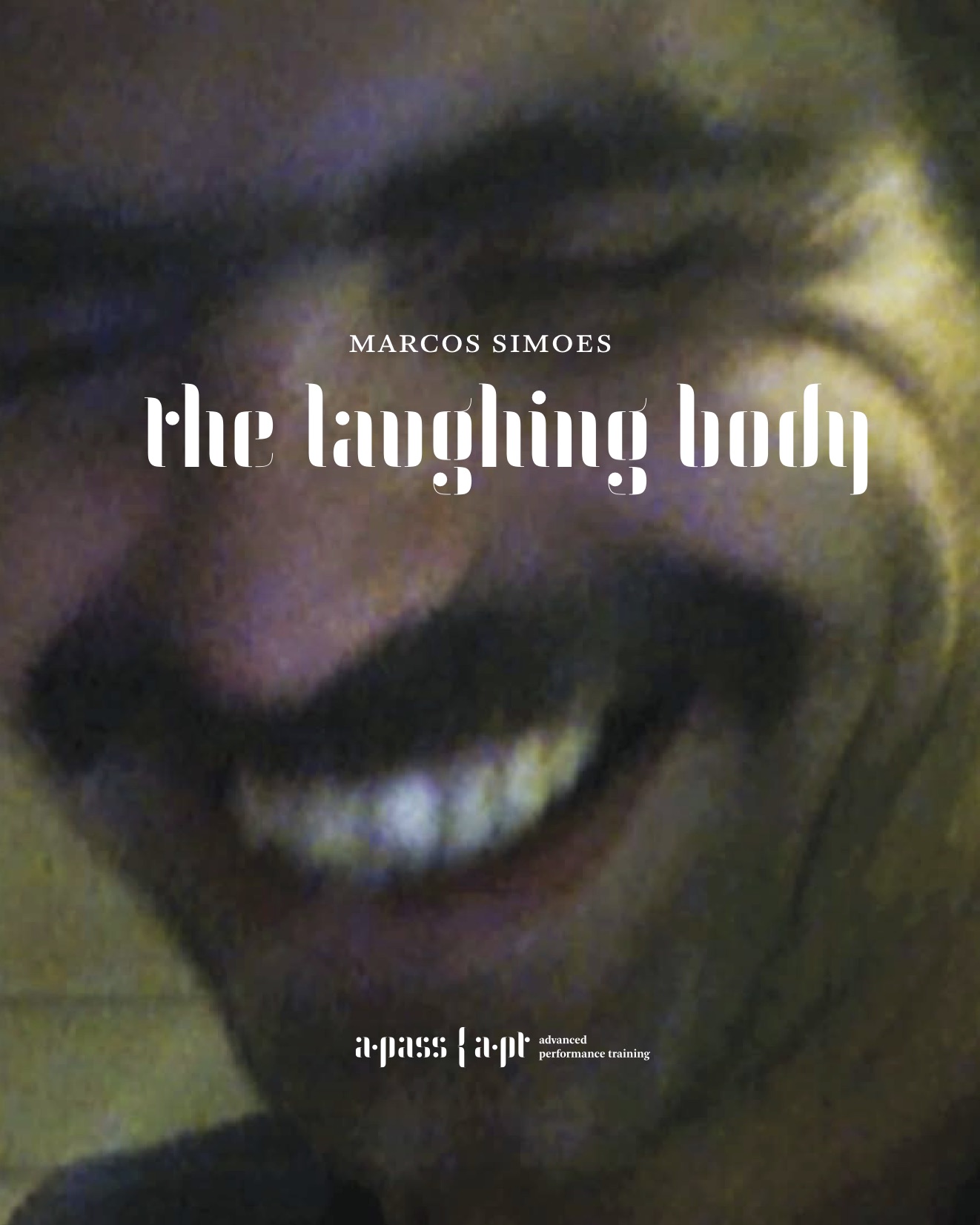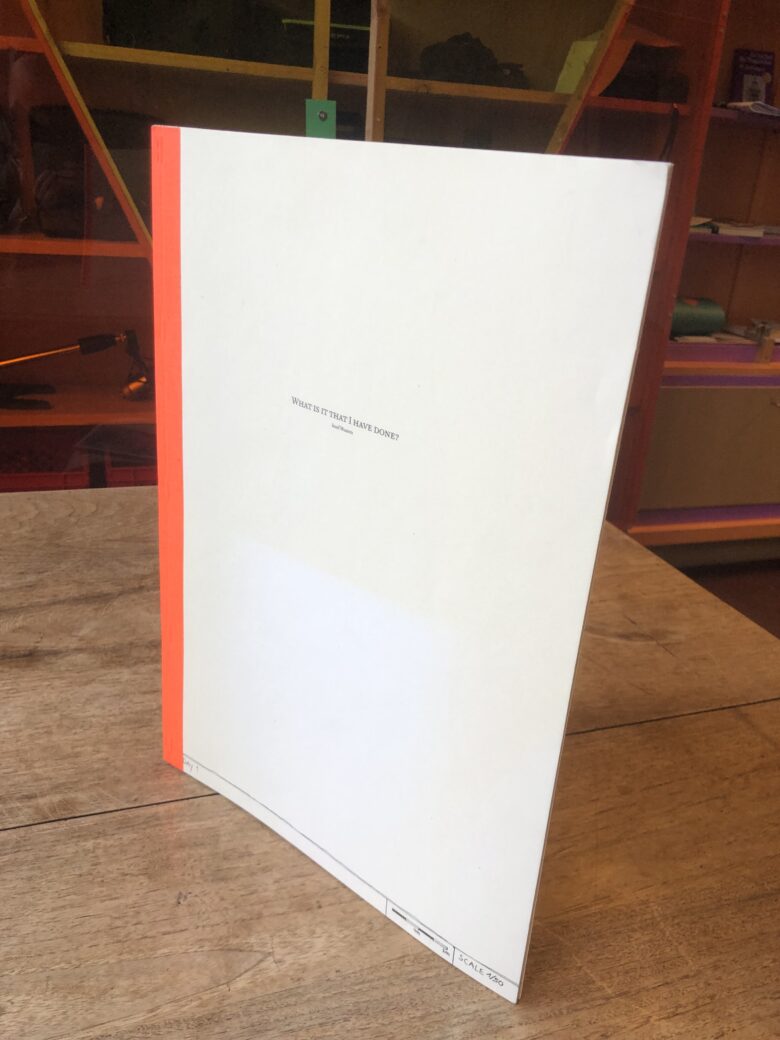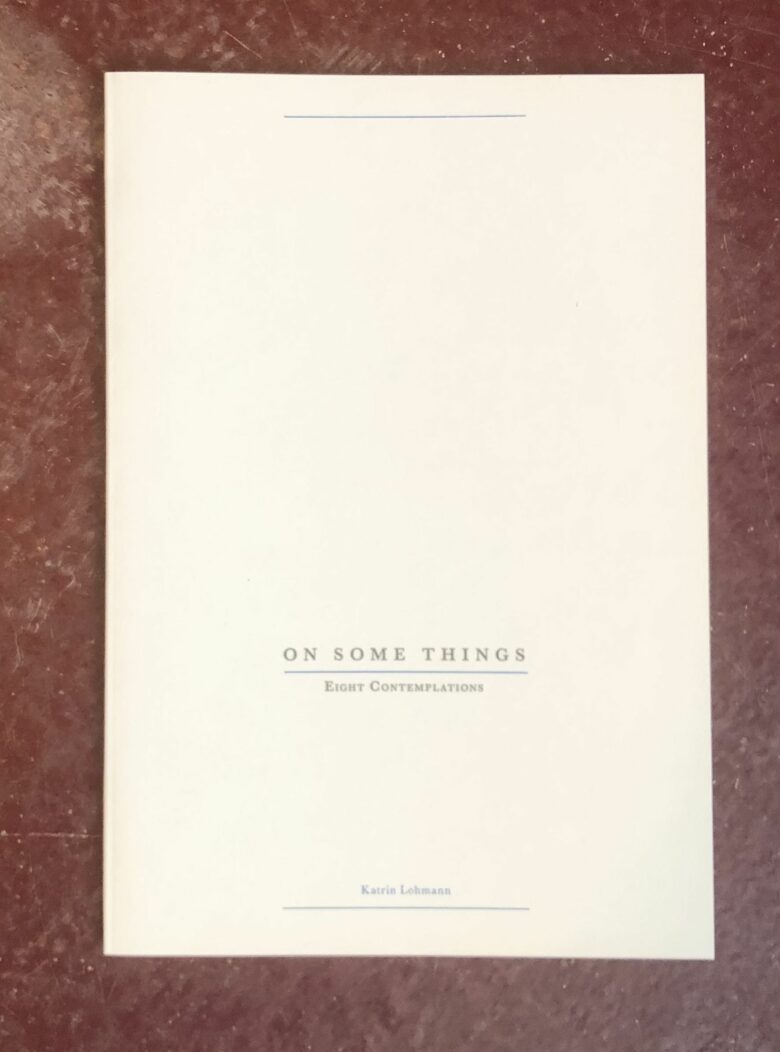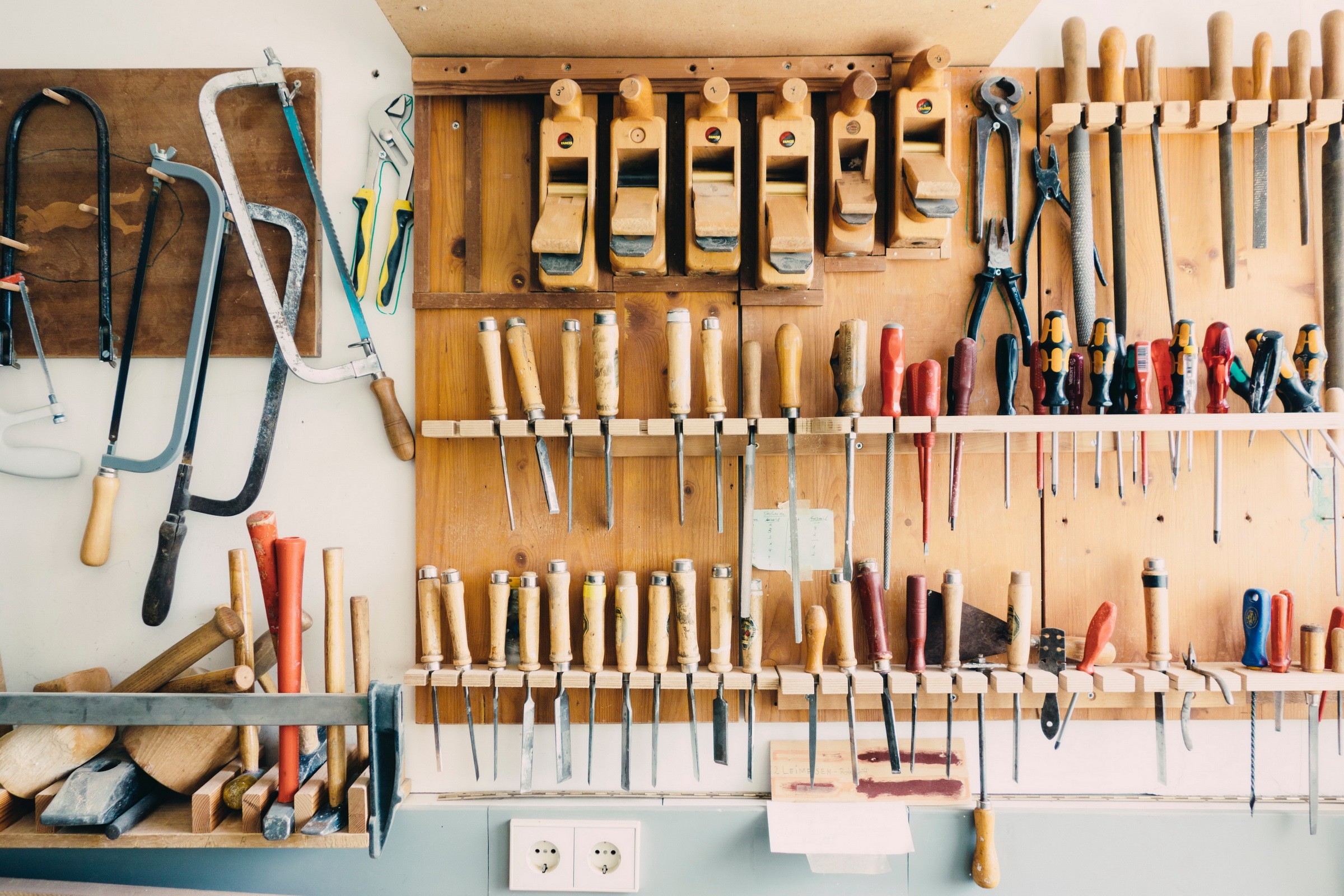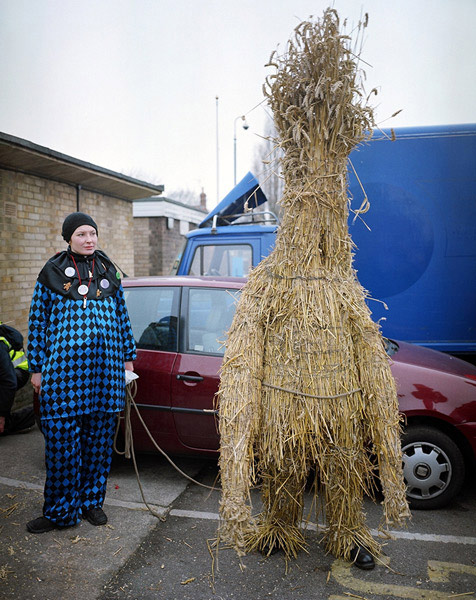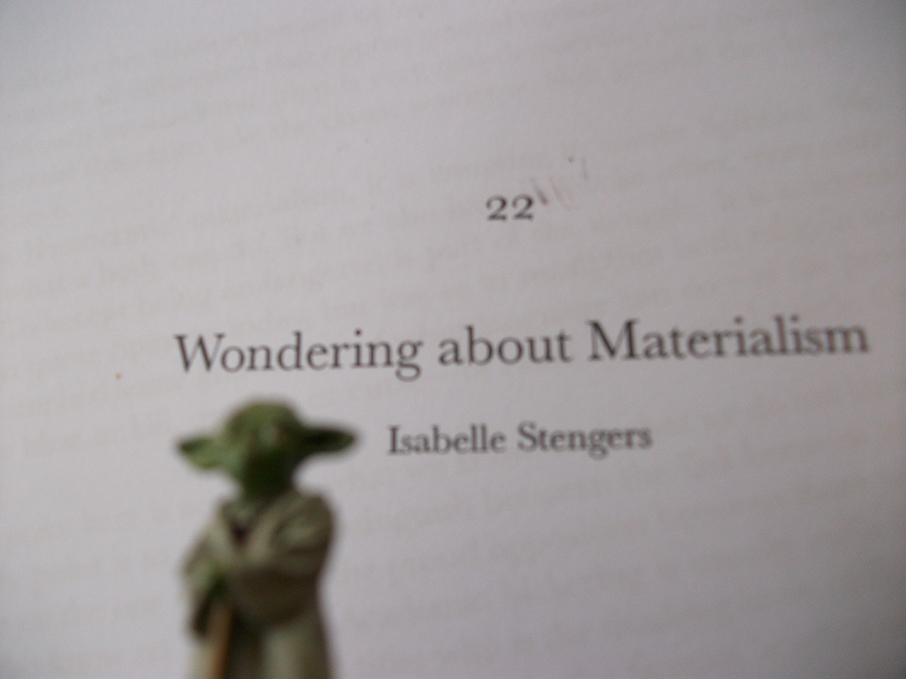postgraduate program, research center
2010 BLOCK II
1 May-31 July 2010
Researchers Participants in the Postgraduate Program
Adva Zakai
Agnese Cornelio
Alessandra Coppola
Ana Casimiro
Charlotte Bouckaert
David Zagari
Einat Tuchman
Heike Langsdorf
Iuliana Varodi
Katrin Lohmann
Manne Granqvist
Manon Avermaete
Marcelo Mardones
Maria Lucia Correia
Michiel Reynaert
Philip Janssens
Stephen Bain
Sven Goyvaerts
Research End Presentations
Alejandro Petrasso
Dianne Weller
Fanny Zaman
Kurt Van Overbeke
Sara Vilardo
Partners
Les Bains
MicroMarché
Sarma
Workspace Brussels
Nadine
SoundImageCulture
Contributors for workshops
Adva Zakai
Agnese Cornelio
Anette Baldauf
Charlotte Brouckaert
Dries Verhoeven
Elke Van Campenhout
Erik Devries
Jeremy Wade
Joao Fiadeiro
Joël Verwimp
Katrin Lohmann
Laurent Liefooghe
Laurent van Lancker
Luk Lambrecht
Manne Granqvist
Marcelo Mardones
Maria Lucia Correia
Nicolas Galeazzi
Sven Goyvaerts
Coordinators a.pass
Bart Van den Eynde
Elke van Campenhout
Mentors
Anette Baldauf
Nicolas Y Galeazzi
10-14 / 05 / 2010
‘HP OFFICEJET 9130 ± ERRORS’
workshop by Nicolas Y Galeazzi & Joël Verwimp
Developments in technology and changes in society regularly render things obsolete; think of professions like blacksmithing, technology like oil lamps, and rules about handling horses. Copyright law might well become such an obsolete instrument. In fact, it never really worked outside the US/European borders and open source software already moves beyond copyright restrictions worldwide. This shows that making and meaning in the current cultural environment requires a response to existing institutional and organisation structures, identifying differences and engaging art as an open ongoing process. With COYOTL, we produce or try to produce a vivid impression of knowledge products: of these, software is unique, as it is said to have behaviour. More specifically, it instills behavior in computers when it is executed by them, causing tangible effects in the real world. Just like software, we believe that performative publishing is such a situation allowing a reflexive way of working by engaging with relationships.
In the framework of the Bains Connective DIY residency lab at MicroMarché, we edited previous COYOTL material into the printed workbook The leakers which will build the basic discourse for the workshop. Together with your project material (on paper, in form of quotations, or as live or memorised events) we will create a pool of content, which will be copied, scratched, hacked, nod rearranged as a resource for each other’s project. Departing from these thoughts and the mutating discussion around copyright/copyleft/open source COYOTL will play as usual, with the copy-machine (HP Officejet 9130 is currently our main tool) in order to
– develop models of cooperation for any kind of art and knowledge production
– facilitate an environment for independent and NOT-NEGOTIATED exchange and development of other artist’s practice
– perform on paper, nurtured by and leading to performance in OTHER spaces/logic
– question not only new work models, but also what kind of space and organisational structure art production needs today
17-21 / 05 / 2010
‘REVOLUTION’
no-workshop workshop by Katrin Lohmann & Manne Granqvist,
with guests: Nicolas Y Galeazzi, Bavo, Dieter Lesage
The no-workshop organizers believe that the concept of revolution is a relevant and urgent one for our times. What does a revolution imply for society, and for the individual? Is the total collapse near, is it necessary, is it desirable? What are the possible positions in relation to revolution for the artist and for the activist?
The organizers of the REVOLUTION no-workshop do not pretend to be experts on the subject. Rather they regard the workshop as an opportunity to research a cluster of topics that they regard alarmingly pertinent, for themselves and for the present times, with others who share the same sentiment. It is the experience of the no-work-no-shop organizers that the matters at hand are of a kind that strike a natural chord with not so few people in the present times.
19-21 / 05 / 2010
‘DOCUMENTARY’
workshop by Laurent van Lancker in collaboration with SIC
SoundImageCulture is a group of artist-anthropologists committed to artful storytelling through real human encounters that challenge documentary conventions, and opens up to sound and image installations. Informed by developments in cultural theory, social sciences, and the visual art. SIC questions the relation between artist, subject and viewer. How can you represent somebody in sound and image when you don’t know his or her background? The answer is not to eschew representation; rather, SIC proposes an ethical reflection on how ‘the other’ is presented in contemporary media, believing this to be an urgency of the multicultural society we live in.
24-28 / 05 / 2010
‘QUEER IN THE CITY’
workshop by Anette Baldauf
I am not a Queer Studies expert, but I have worked, and taught, on questions of gender, sexuality and the city. I would love to connect that knowledge with theories on performativity, maybe starting off from Judith Butler and Jack Halberstam, both of which we addressed during the City of Illusion workshop. I have been teaching a lot on the so-called Girl Movement – Riot Girls, Dyke Bands… – which tried to challenge concepts of femininity through pop music and performance in the mid 90s, and the following backlash of Britney Spears etc.- which was a performance of femininity as special effect. We could e.g. read, and then analyze artistic as well as popular culture strategies of the gender confusion.
31/05 – 11/06 2010
‘STORYBOARDING’
workshop by Jeremy Wade
In many ways performance is one big performed storyboard, an invisible text set of directions and nothing more. At the other hand storyboarding itself is an art form. So how to use a storyboard to construct a performance and how to make a storyboard performative, how to blur the boundaries between storyboard and piece. Starting from a written proposal minimum of three pages of each of the participants, storyboards will be made, including an application for a grant with a budget of the project.
As Contemporary Performers, Choreographers, Directors, and Scenographers we work toward events that have the potential to rewrite and dislocate an audience from stratified senses of meaning. During the course of this exploration/composition workshop we will strive to facilitate the great blur through the investigation of numerous storyboarding techniques. We will also research a wide array of taboos, techniques and theories that help us get closer to an essential concern of composition and aesthetics which is the age-old question of… “What is a thing”? We look at a vast index of queer scores that shed some light on the circularity of aesthetics. We can make monsters out of these stagnant aesthetics and gain perspective on how to compose, obliterate, blur and layer our lovely things for an audience. We will find modes to clarify our concepts for the pre production and production phases of creation. We will work towards structuring and deconstructing our ideas, both material and ethereal.
07-11 / 06 / 2010
‘EXHAUSTING DANCE’
reading sessions
After having wrestled ourselves through the introduction of this book on contemporary dance (edited by André Lepecki), we decided to take a second look at the book in a full reading-session week.
The only scholarly book in English dedicated to recent European contemporary dance, ‘Exhausting Dance: Performance and the Politics of Movement’ examines the work of key contemporary choreographers who have transformed the dance scene since the early 1990s in Europe and the US.
Through their vivid and explicit dialogue with performance art, visual arts and critical theory from the past thirty years, this new generation of choreographers challenge our understanding of dance by exhausting the concept of movement. Their work demands to be read as performed extensions of the radical politics implied in performance art, in post-structuralist and critical theory, in post-colonial theory, and in critical race studies.
This book offers a significant and radical revision of the way we think about dance, arguing for the necessity of a renewed engagement between dance studies and experimental artistic and philosophical practices.
We will combine the reading sessions with fragments out of the work of contemporary choreographers and bring the practice to the theory.
14-18 / 06 / 2010
‘PERSPECTIVES ON SPACE’
reading sessions
In this reading sessions we invite several scenographers and artists in whose work the use & organization of space is essential, to read with us texts that have been essential in their development as artists. A starting point to speak about other influences and important meetings in their carrier, and to show fragments of their work. Erki Devries, Luk Lambrecht, Dries Verhoeven & Laurent Liefooghe are our guests.
21 – 24 / 06 / 2010
‘PSYCHOANALYSIS FOR BEGINNERS’
workshop by Elke Van Campenhout under mentoring of Mladen Dolar in collaboration with Sarma and Workspace Brussels
The workshop on psychoanalysis will open up the field of thinking of Lacan and related thinkers to a group of beginners in the theory. In the arts psychoanalysis has taken up a central position in the interpretation and thinking about the arts. Although a lot of the time implicit, the frame of thinking about the Real, objet petit a, etc… is part of our cultural and esthetic heritage. In this workshop we look the first two days at Slavoj Zizek’s film ‘The Pervert’s Guide to Cinema’ in which he explores the psycho-analytical subconscious of Hollywood film-making. Afterwards we read Zizek’s book ‘Welcome to the desert of the Real’ for a contemporary and highly political performativization of what the psycho-analytical framework can still teach us today.
25 / 06 / 2010
‘SOCIAL MEDIA & THE AVATAR’
workshop by researcher/participant Sven Goyvaerts
One day around the basics of the social media and the role of the avatar in our thinking about (alternative or virtual) identities.
28 / 06 – 2 / 07 / 2010
‘THE GAZE’
workshop by researchers/participants Agnese Cornelio, Marcelo Mardones, Charlotte Brouckaert & Sven Goyvaerts
How do we construct our identity through the look of others? How do we look at others an read them? How are we judged by others or do we feel judged by them? And how does the gaze function in the social media, how do we control the gaze of the others and how do we read others by their virtual presentation?
Partly reading session, partly practical research using social media and the camera as a tool to catch the gaze.
5-11 / 07 / 2010
‘FIND YOUR INNER IDIOT’
camping group practice by a.pass
Loosely based on the Dogma movie ‘The Idiots’ by Lars Von Trier, we work for one week on the principles of idiocy as a potential artistic, political or actionist strategy. During the workshop we try to define different methodologies to discover our ‘inner idiots’, both on a physical practice level as on a theoretical level. We combine reading and viewing sessions of material relating to ‘idiocy’ (out of philosophy and art history) with physical sessions, aiming at the development of a personal and a communal idiot body. Each of the participants can devise his/her own perspective on the mindset and context out of which to work, trying to discover within a small group of dedicated participants their personal ‘inner idiots’, and constructing a group practice out of this confrontation. We might bring the practice to public space when we feel ready for that. Only for true idiots!
12 – 16 / 07 / 2010
‘TERROR’
film analysis workshop by a.pass
An exercise in concrete and detailed analysis, argumentative construction and critical discussion. In this workshop we analyze horror movies. How does the mechanism of terror functions in these movies and which are its disguises? How do we deal with our instant emotional (moral) reaction in our discussion? Where does art starts and exploitation ends? What is the place of horror in our lives? One of the distinguishing features of modern life is that it supplies countless opportunities for regarding (at a distance, through the medium of film, photography, the net) horrors taking place in the real or in fantasized worlds. Images of atrocities have become, via the screens of the television and the computer, a commonplace. What is this fascination with the depiction of cruelty? Is ours perception of reality eroded by the barrage of such images or do they just make us happy that we are alive?
This workshop is in the first place aimed at analyzing the formal principles of movie making: the creation of ‘horror’ through camera perspectives, montage, use of (off-)voice, etcetera. But next to that we also try to come to a deeper understanding of the parameters of horror, by reading texts (Sontag, Zizek, Cronenberg,…) to feed the discussion.
17-23 / 07 / 2010
‘HARD WORKING IDLES’
workshop by researcher/participant Adva Zakai with Joao Fiadeiro and guests
Each day will be divided into two sessions: Mornings to the practice of Real Time Composition*, a method developed by Joao Fiadeiro, and afternoons to a talk with an invited guest.
Why ‘hard working idlers’? Because I find myself confronted by this contradiction: On the one hand, being critical towards the ethics of artistic practice that are increasingly product-oriented – generating practices which are exclusive rather than inclusive, imposing a position on the artist’s plan rather than enabling an ‘emergence’ of a situation. On the other hand, appreciating a personal examination of ideas or
forms, and intrigued by a detailed, skillful and directed proposition from the artist to the public.
Can these two approaches complement rather than oppose each other: Where does the artist’s control over a performance stop and the event generate itself through the contributions of all its participants? How much (or rather what kind of) ‘work’ is needed in order to trigger a situation?
The same inquiries are perhaps relevant with regards to the way one relates to one’s surroundings. Can changes in society emerge through individual or self-organized mechanisms rather than be dictated by overarching norms, ideologies and preconceptions? If we consider an experience as complete even though its in a constant state of becoming itself – would it allow more dynamic and liberation from dogmas in our day, work, life, art?
19-23 / 07 / 2010
‘THE REALITY, THE GIANT SCENARIO III’
workshop by researcher/participant Maria Lucia Correia
The City appears as a breathing entity that contains the concept of future reflections and artistic interventions. The reality, the Giant Scenario is a workshop that approaches the city space as a living body that seeks for our attention. As working methodology we will address the city space, with a critical vision on sensorial and visual awareness. In order to map our environment we will draw and recompose the elements of the urban space, collecting lost details and objects on our city walks (derives). Moments where we will get lost into a world of colors, shapes, ornaments, sounds, rhythms… and relate to places that are damaged, abandoned, dead or ill… The workshop will then resource the urbanist and emotional mapping of the space and its graphical potentialities within a new scenario, a new life, a new narrative of forgotten details. The city will not be the set of public interventions but a living body that incorporates us, an extended form of connections, reconstructions, treatment, placement and intersections.
